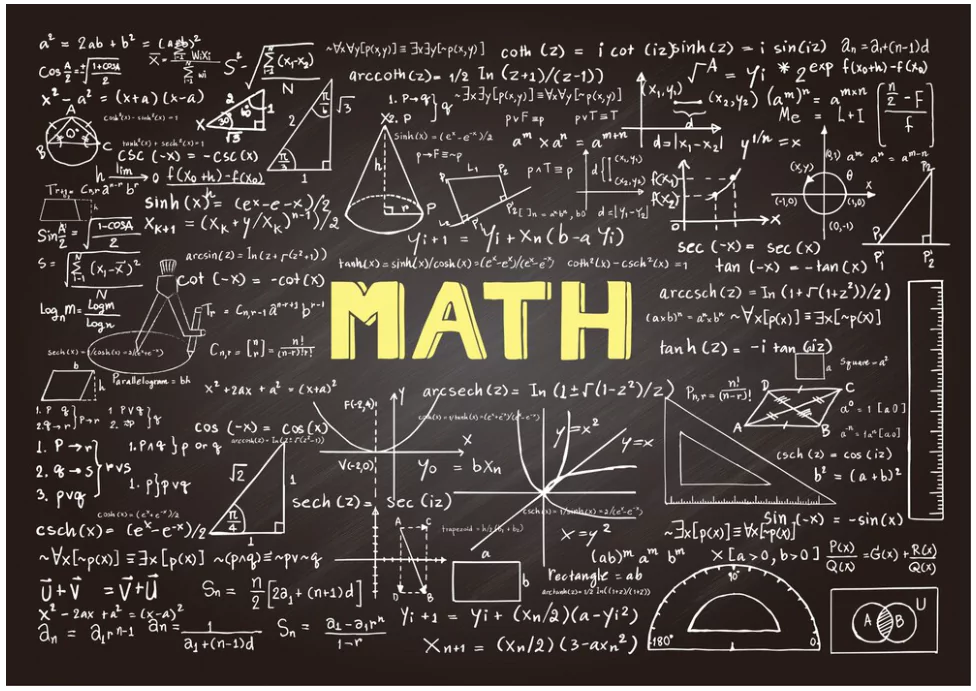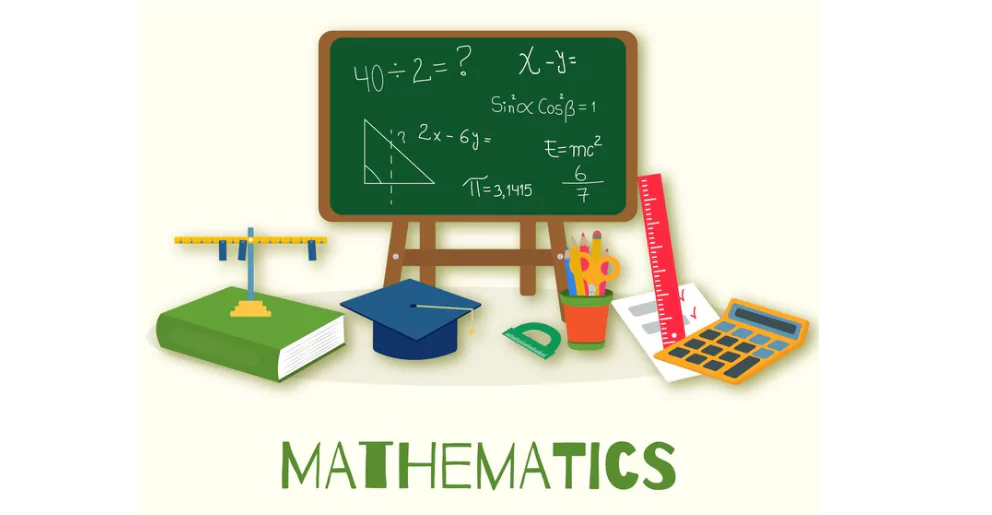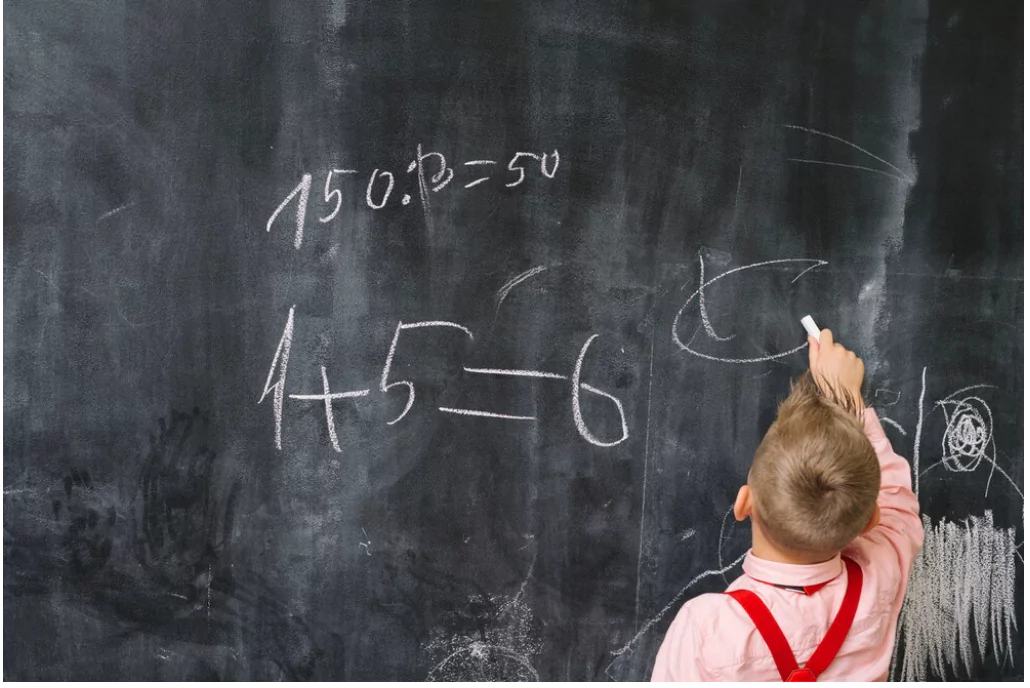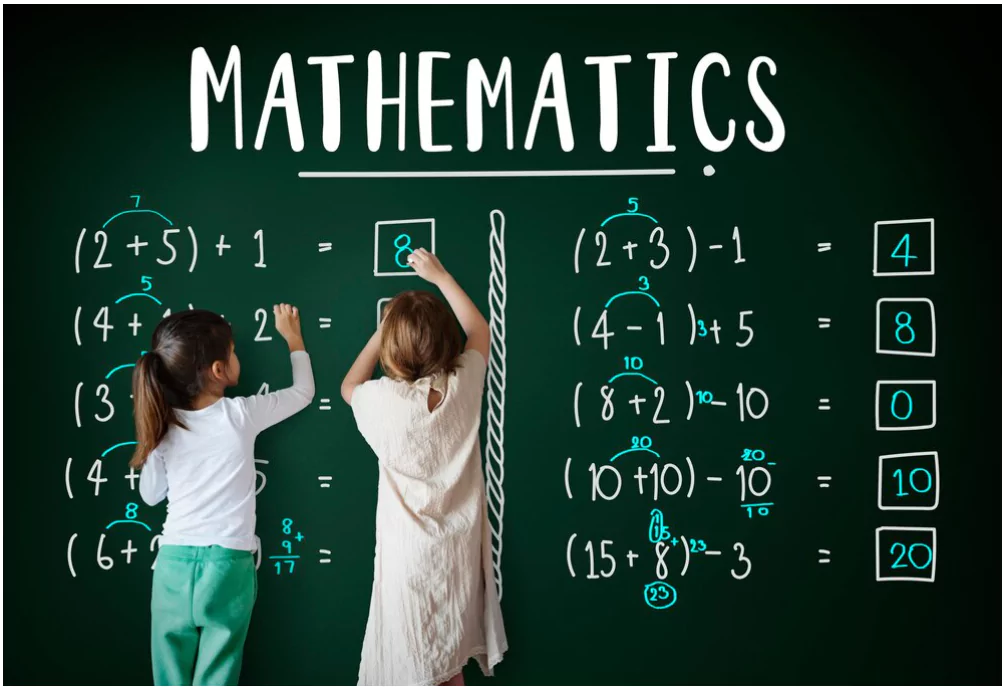
Accepting the idea that “Math is fun!” has the power to transform a child’s learning experience. In this blog, we’re going to look at creative ways to bring joy to math lessons, away from the boring nature of the standard worksheet that may dampen your child’s enthusiasm.
It’s true that math isn’t everyone’s favorite subject, but there are plenty of ways for parents and teachers to make it a fun and engaging experience for kids. Keep reading to find out how educators can bring positivity to math lessons and use effective strategies to turn math into an exciting activity for kids.
5 Approaches for Positive Math Lessons

Here are five detailed strategies they can employ to create positive and thrilling math lessons:
1. Foster a Growth Mindset
Encouraging students to believe in their capacity to enhance math skills through dedication and practice is crucial. This mindset shift turns challenges into opportunities for learning and development. Teachers can implement growth mindset activities, provide constructive feedback, and emphasize the importance of effort in the learning process.
2. Provide Context and Relevance
Illustrating the applicability of math in real-life situations is essential for making it intriguing and motivating for students. Teachers can incorporate examples and projects that demonstrate how math is used in various professions and everyday scenarios, fostering a deeper understanding and appreciation of mathematical concepts.
3. Utilize Encouragement and Positive Reinforcement
Recognizing and celebrating students’ efforts, progress, and accomplishments in math are fundamental. Positive reinforcement, such as personalized compliments, certificates, or small rewards, plays a crucial role in elevating their confidence and enthusiasm for math activities. Regular acknowledgment of achievements creates a positive learning environment.
4. Cultivate a Supportive Classroom Culture
Establishing a secure and inclusive environment is essential for students to feel at ease by asking questions, expressing thoughts, and making mistakes without the fear of judgment. Teachers can implement strategies such as class discussions, collaborative projects, and team-building activities to encourage teamwork and peer support, thereby enhancing the overall classroom ambiance.
5. Incorporate Fun and Interactive Activities
Making math lessons enjoyable involves integrating games, puzzles, and hands-on activities into the curriculum. Game-based instruction not only adds an element of fun but also enhances critical thinking skills, deepens understanding of mathematical topics, and empowers students to tackle challenging problems. Educators can explore interactive resources and design engaging activities that align with the curriculum.
Despite these efforts, it’s important to acknowledge that some students may still encounter difficulties with math. Understanding the underlying reasons for their challenges is crucial for tailoring creative approaches to make math engaging for everyone.
Recommended Reading: TOP 10 TIPS FOR CHOOSING A SUMMER CAMP FOR YOUR CHILD
Unveiling the Challenges: 8 Reasons Why Some Kids Dislike Math

Try to unearth the reasons behind students’ aversion to math revealing common challenges that require nuanced solutions.
Here are detailed insights into these challenges:
1. Lack of Comprehension or Misconceptions about Math Concepts
Addressing individual learning needs is crucial to ensure that students grasp fundamental math concepts. Teachers can implement differentiated instruction, provide additional support, and use visual aids to clarify abstract concepts.
2. Fear or Anxiety Related to Math Performance
Recognizing and addressing math-related anxiety is essential. Teachers can create a supportive environment, offer personalized assistance, and implement stress-reducing strategies to help students overcome their fears.
3. Monotonous or Uninspiring Teaching Methods
Innovating teaching methods to make math lessons dynamic and engaging is essential. Incorporating multimedia, real-life examples, and interactive technologies can bring vibrancy to the learning experience.
4. Limited Relevance or Real-World Connections in Math Lessons
Demonstrating the real-world applications of math concepts is crucial for capturing students’ interest. Teachers can integrate relevant examples from various fields, organize field trips, or invite guest speakers to showcase the practical side of math.
5. Negative Experiences or Low Self-Confidence Stemming from Past Math Challenges
Building students’ confidence is a gradual process. Teachers can provide additional support, offer constructive feedback, and celebrate small successes to help students overcome negative experiences and build a positive attitude toward math.
6. Perception of Math as a Challenging or Uninteresting Subject
Shifting the perception of math requires innovative approaches. Teachers can showcase the beauty and excitement of mathematical discoveries, share stories of mathematicians, and highlight the relevance of math in solving real-world problems.
7. Lack of Personalized Support or Differentiated Instruction
Recognizing and addressing individual learning styles and needs is crucial. Teachers can implement differentiated instruction, provide one-on-one support, and leverage technology to tailor lessons to the diverse needs of students.
8. Limited Engagement or Interaction in the Classroom
Creating an interactive and engaging classroom environment is essential for fostering a love for math. Teachers can encourage class discussions, group activities, and collaborative projects to enhance student engagement and interaction.
By comprehensively addressing these challenges, educators can lay the groundwork for transforming the math classroom into a nurturing and supportive environment. Let’s delve into imaginative ways to make math an enjoyable experience for students, ensuring that each child can find joy and success in their mathematical journey.
Recommended Reading: BENEFITS OF INTEGRATING PRACTICAL LEARNING WITH SCHOOL EDUCATION
Creative Ways to Make Math Fun for Students

1. Mathematical Games
Integrate excitement into the learning process by incorporating entertaining games such as Math Bingo, Math Jeopardy, and Math Puzzles. These games serve as engaging tools to reinforce mathematical concepts, and the inclusion of team-based competitions and rewards adds an element of excitement and motivation for students.
2. Practical Applications
Illustrate the practical relevance of mathematics by presenting real-life scenarios. This could involve using recipes to understand fractions or calculating distances for a hypothetical road trip. Establishing connections between mathematical concepts and everyday life enhances students’ appreciation for the subject and demonstrates its usefulness.
3. Narrative Mathematics
Transform abstract math problems into captivating stories. By incorporating storytelling into the curriculum, educators can make complex mathematical concepts more tangible. Storytelling not only sparks imagination but also aids in the retention of information and ignites students’ curiosity.
4. Mathematics lessons amidst Nature
Take the classroom outdoors to explore the mathematical patterns present in nature. Studying symmetry in leaves, identifying geometric shapes in flowers, or calculating plant growth not only provides an educational experience but also fosters a sense of enjoyment and appreciation for the subject.
5. Mathematical Art Projects:
Foster creativity by integrating mathematics into art projects. Students can create tessellations, design fractal patterns, or use graphing to produce visually appealing creations. This approach not only combines math and art but also encourages students to think creatively about mathematical concepts.
Recommended Reading: EXPERT OPINION: HOW EXPERIENTIAL LEARNING CAN IMPROVE KID’S LEARNING
6. Harmony of Math and Music
Explore the mathematical connections within music by delving into rhythm, beats, and patterns. Educators can teach students about time signatures and musical notes, incorporating mathematical principles into the creation and appreciation of music.
7. Field Trips with a Mathematical Twist
Organize field trips to locations where math is applied in practical ways, such as construction sites, banks, or science museums. Seeing mathematics in action makes the subject more tangible and relatable for students, providing a real-world context for their learning.
8. Mathematics in Cinematics and Literature:
Integrate mathematical concepts into beloved movies or books to showcase how math can be captivating and life-altering. Films like “A Beautiful Mind” and books like “The Number Devil” bring math to life through storytelling, making it more interesting and relatable.
9. Collaborative Math Endeavors:
Promote collaborative math projects to foster teamwork and peer learning. Working together on challenging problems not only makes math more enjoyable but also helps alleviate any intimidation students may feel about the subject.
10. Math Competitions and Olympiads:
Engage students in math competitions and Olympiads to showcase their skills and allow them to compete with peers from other schools. Healthy competition serves as motivation for students to excel in math and provides a platform to celebrate their achievements.
11. Mathematical Role-Play:
Coordinate role-playing activities where students apply math concepts to solve problems. For example, students can take on the roles of architects designing a dream house using geometry or budget managers planning a party with a fixed budget.
12. Math Technology Tools:
Utilize educational technology tools, including math apps, interactive websites, and educational games. These personalized and interactive tools make math learning more engaging for each student, catering to various learning styles.
13. Math Magazines and Comics:
Subscribe to math magazines or create math-themed comics for the class. Entertaining articles and comics make learning enjoyable and intriguing, providing an additional avenue for students to explore mathematical concepts.
14. Solving Math Mysteries
Introduce math mysteries or puzzles that require group solving. Activities like treasure hunts with math clues for mystery stories with mathematical reasoning challenges enhance critical thinking skills and add an element of mystery and excitement to the learning experience.
15. Commendation for Math Achievements
Celebrate students’ math achievements by acknowledging their efforts, improvement, and creative problem-solving approaches. Establish a math hall of fame or present math achievement awards to inspire continued enjoyment and success in the field of mathematics.
Conclusion
By incorporating these creative approaches, educators and parents can transform math from a mundane subject to an exciting adventure. Making math enjoyable not only enhances academic performance but also instills a lifelong appreciation for the subject. Let’s embark on a journey to unleash the fun in math and inspire the next generation of math enthusiasts.
Want to excite your child about math and sharpen their math skills? Moonpreneur’s online math curriculum is unique as it helps children understand math skills through hands-on lessons, assists them in building real-life applications, and excites them to learn maths. You can opt for our Advanced Math or Vedic Math+Mental Math courses. Our Math Quiz for grades 3rd, 4th, 5th, and 6th helps in further exciting and engaging in mathematics with hands-on lessons.
















